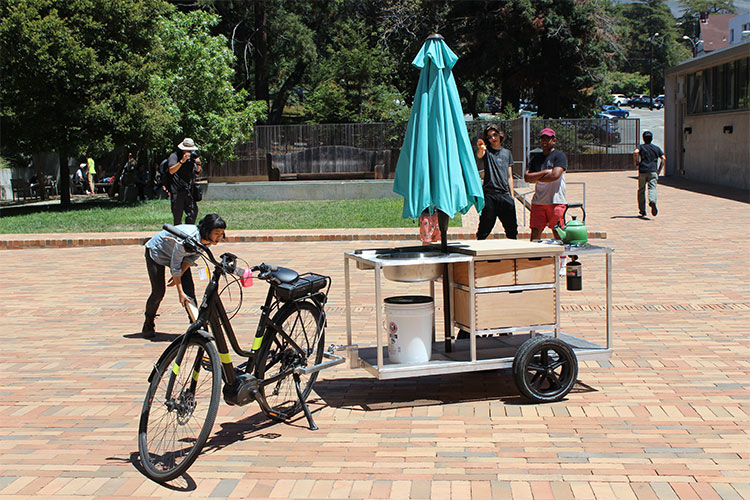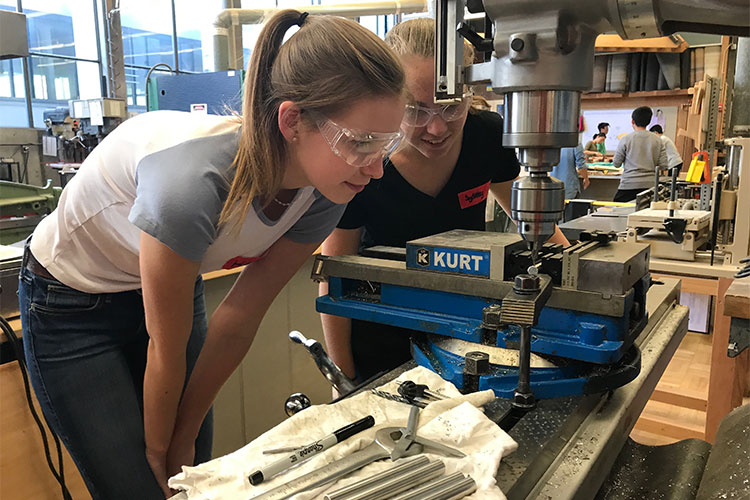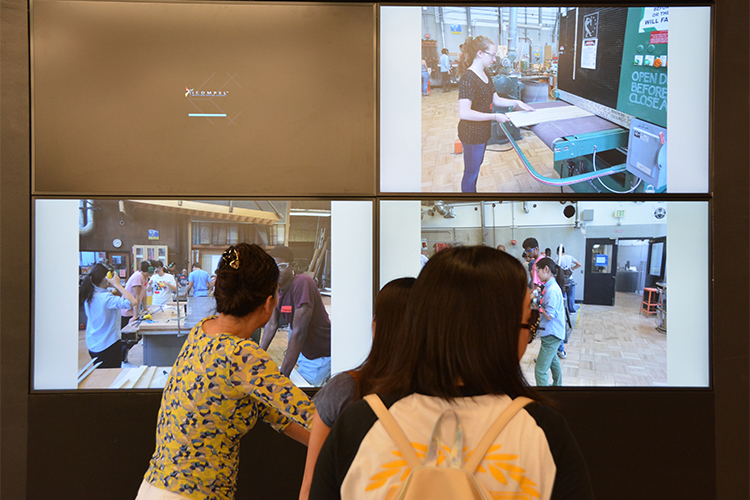Better student nutrition by design
Students in a summer academy used newly acquired design and fabrication skills to meet special campus community needs

August 17, 2017
There’s nothing like a new set of wheels to launch the school year, only those coming from the College of Environmental Design’s embARC Summer Design Academy will help the human engine.
The products of this summer’s embARC Design Build project aim to enhance the accessibility and visibility of a host of services providing fresh, affordable and nutritious food to students in need at UC Berkeley.
The wheels have been installed on two cargo trailers, a small pop-up kitchen and a mobile farm stand constructed by about 50 high school juniors and seniors during a four-week summer program in which they learned metalworking, woodworking, digital fabrication and design skills. One cart with wooden baskets is dubbed the Tour de Fruit, another the Kitchlet, and the small and large cargo trailers are adorned with a Basic Needs Security logo.
Every week, the devices, pulled by electric bikes, will collect about 50 pounds of fresh food grown at UC Berkeley’s Gill Tract in Albany as well as from garden sites on the north side of campus and at the Clark Kerr campus on the south side.
Supplies can be transported via two of the carts to the campus Food Pantry in the basement of the Martin Luther King Jr. Student Union, or to special events at other locations. The farm stand trailer will be used by the Food Pantry as a pop-up pantry and by the campus gardens as a farm stand.
The Kitchlet cart features a couple of propane-powered burners and countertops for demonstrations of healthy meal preparation by nutritionists from University Health Services.
A 2016 UC Student Experience Survey found that 39 percent of UC Berkeley students experience food insecurity, which can range from having insufficient food supplies, undergoing disrupted eating patterns or lacking balanced meals.
The embARC Summer Design Academy brings high school students from around the world to UC Berkeley’s College of Environmental Design for immersive study in architecture, design, fabrication and sustainable city planning as they respond to local social/environmental justice issues.
In previous summer sessions, embARC students have applied design solutions to real-world problems by constructing nesting boxes to promote East Bay bird conservation, and building storage devices for the Verde Partnership Garden in North Richmond to promote healthy eating.
With this summer’s Design Build project, the students responded to lectures and presentations by campus Food Pantry and nutrition services leaders as well as instruction in the Sustainable City Planning Workshop before heading into the fabrication shop.
The embARC program convinced Sam Leung, 16, of Seattle, to study architecture rather than structural engineering when he goes to college in a couple of years. His classroom learning, team research with classmates and hands-on experience smoothing and carefully bending the thin, wooden fenders in the studio for the Basic Needs Security trailer “was quite enlightening,” Leung said.
RELATED INFORMATION
● “Ask the Dietitian” is a University Health Services blog in which experts answer common student nutrition concerns, such as how to eat well on a budget, how to handle cravings, and how to avoid the myth of the “Freshman 15” weight gain.
● The Bear Pantry is a volunteer-run food bank at University Village in Albany for low-income UC Berkeley students with dependent children.
● The UC Berkeley Food Pantry provides emergency nutritional support to undergraduate and graduate students, dispensing aid to more than 2,500 students since opening in 2014.











